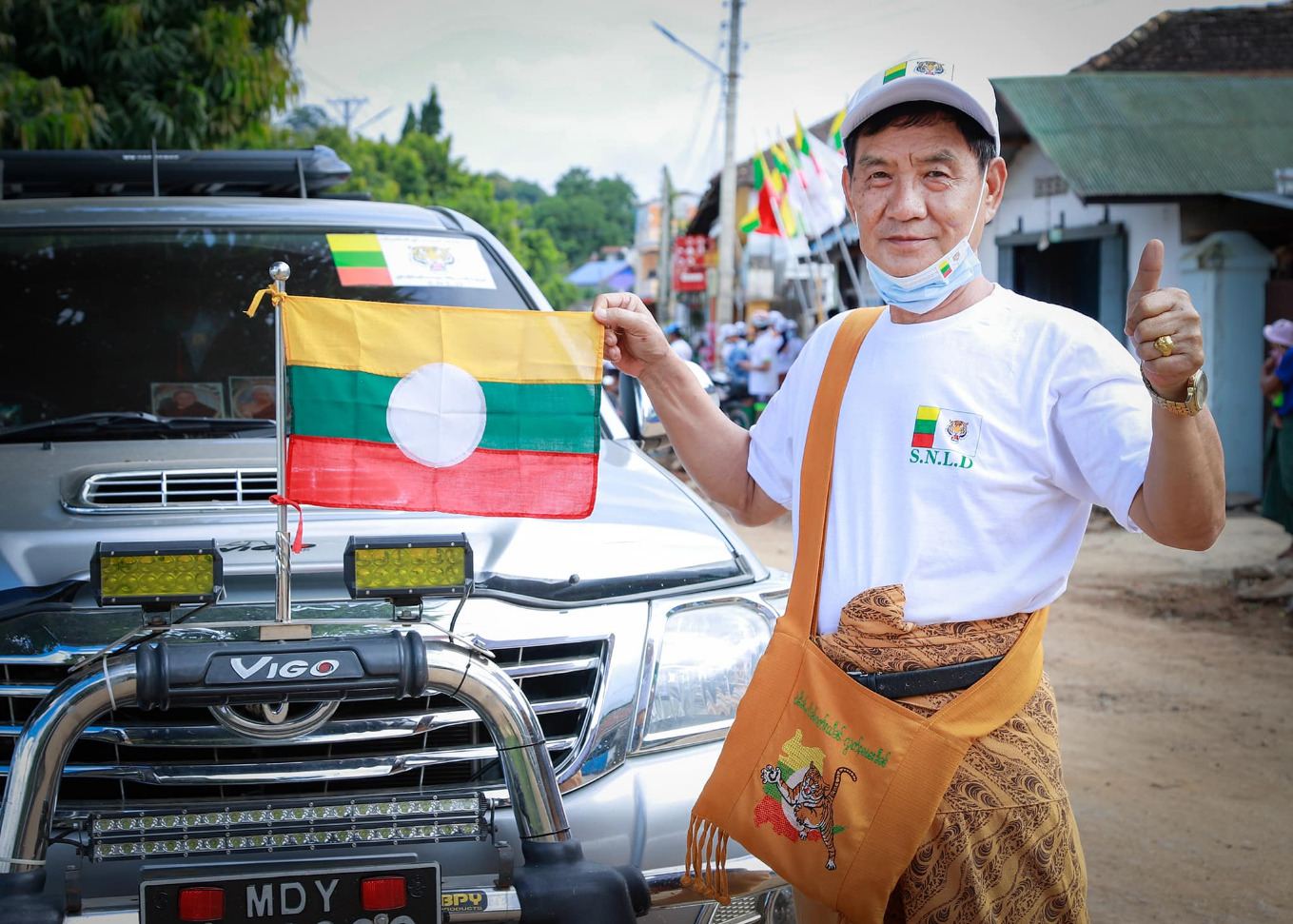|
|
|
With another general election imminent, concerns are deepening that ethnic nationality peoples will be marginalised once again. In this commentary, Lahpai Seng Raw explains why political systems and electoral practices deny equality and representation to so many of the country’s population. Elections will not change this. Political reforms are essential to achieve peace and national reconciliation.
These commentaries are intended to contribute to a broader understanding to the many challenges facing the country and its peoples.
See the complete list of all the Myanmar commentaries.
|
|
|
|
 Campaigning for the Shan Nationalities League for Democracy, eastern Shan State / Photo credit Kham Kyin Campaigning for the Shan Nationalities League for Democracy, eastern Shan State / Photo credit Kham Kyin
|
|
|
|
|
|
|
| |
| What Elections Really Mean For Us: the 2020 Polls in Myanmar |
|
A Commentary by Lahpai Seng Raw
08 October 2020
As we all know, the Myanmar (Bamar) are the majority population, numerically speaking, in relation to the other nationality peoples who co-founded the Union of Myanmar (Burma). Today the non-Bamar peoples are represented by seven ethnic states: Chin, Kachin, Kayah (Karenni), Kayin (Karen), Mon, Rakhine (Arakan) and Shan. All these co-founders voluntarily took part in forming the new Union in 1948 to accelerate the process of independence from Great Britain. The principles of equality and autonomy were enshrined in the Panglong Agreement of February 1947. It was a time of uncertainty but also great hope for the future of our country.
Regrettably, this equal partnership – which was intended as the bedrock of the Union – has never been put in political place. The promises of the Panglong Agreement were quickly forgotten. Negotiations to end the political deadlock have failed in every generation of government, and armed conflicts have continued until the present day without reaching to any peaceful conclusion. Most recently, political hopes have been invested in the 2015 Nationwide Ceasefire Agreement and 21st Century Panglong Conference that began the following year. Both, however, have failed to achieve political leverage and accelerate the processes of change.
General elections are now scheduled for next month. But, with the peace process faltering, the question remains whether equality can be obtained through elections under the present political system or whether the results will further entrench the inequalities and marginalisation that have been at the heart of state failure since 1948. The need for peace and national reconciliation is urgent. Covid-19 is spreading, conflict and civilian displacement are still continuing, and these are days of real hardship and difficulties for communities across the country.
The biggest challenge is the election system itself. A system of quasi-civilian democracy was set up under the 2008 constitution. This includes parliaments at both the national and state/region levels. But the “first-past-the-post” voting system favours large better-financed parties in the different legislatures. Cementing their dominance, the large “national” parties, such as the National League for Democracy (NLD) and Union Solidarity and Development Party (USDP), put up as many candidates as possible, campaign in all the ethnic states, and run against local nationality parties. By comparison, parties representing ethnic peoples or territories are under-financed and unable to put up a great number of candidates.
|
|
|
|
|
|
| |
|
|
|